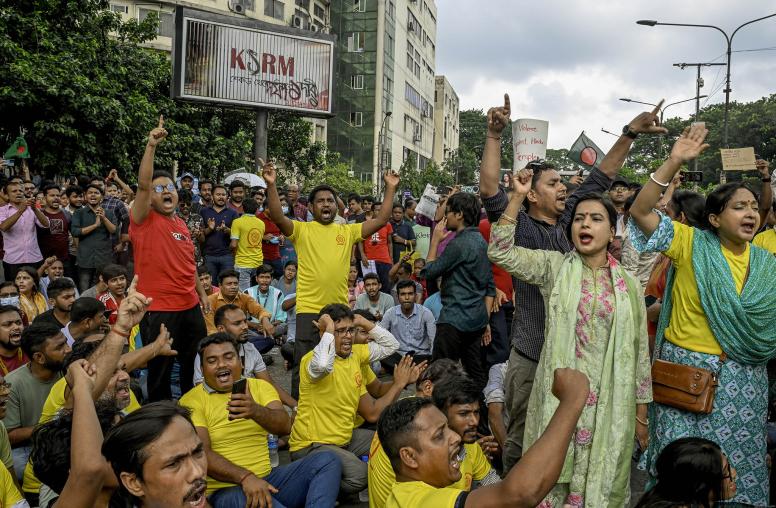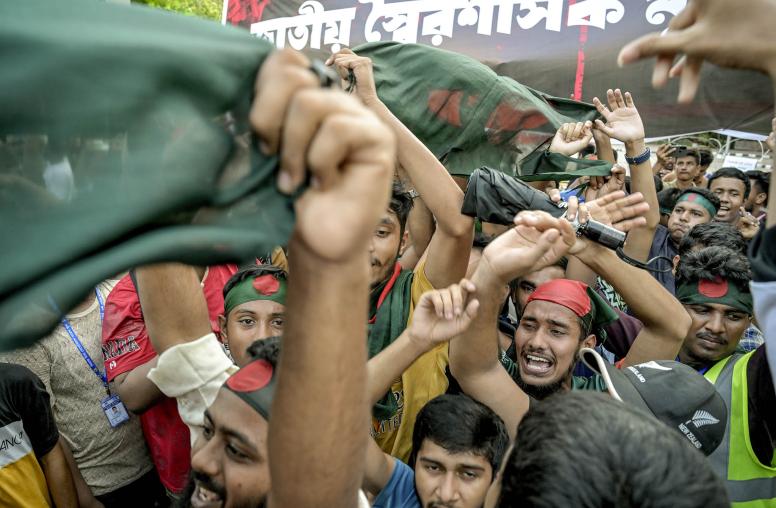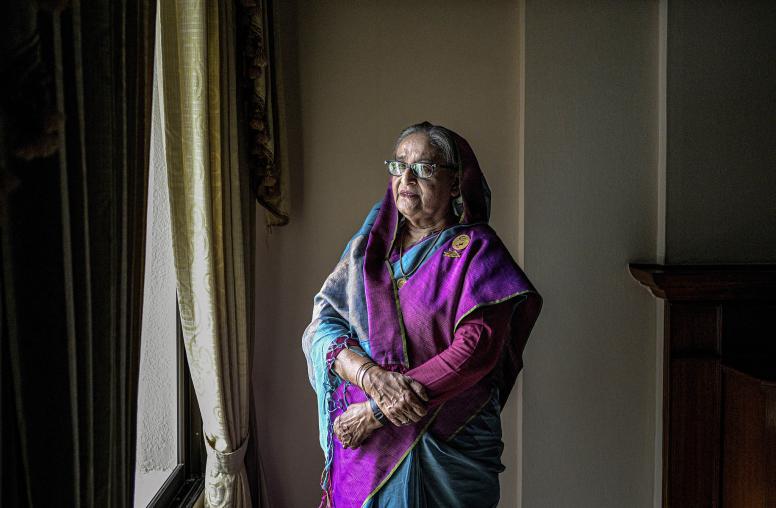The Impact of COVID-19 on South Asian Economies
The COVID-19 pandemic has caused one of the most serious public health and economic crises faced by India, Bangladesh, and Pakistan in recent years. This report looks at the economic impact on these nations, their prospects for the remainder of 2021, and their relations with the United States. It identifies key areas of focus for ensuring the subcontinent’s recovery is equitable—which, in the context of an erosion of democratic norms, growing authoritarianism, and severe crackdown on dissent, could help avoid economic and social instability.

Summary
- The COVID-19 pandemic has pushed millions of households into poverty and substantially increased income and wealth inequality in India, Bangladesh, and Pakistan. This situation poses a serious near-term challenge for policy- makers, especially since rising food and commodity prices compound economic insecurities.
- Narendra Modi’s government in India pursued pro-growth reforms in 2020, but a dramatic second wave of COVID-19 cases beginning in April 2021 not only caused emotional and socioeconomic trauma but created serious economic headwinds.
- A slow recovery in export earnings poses challenges for Sheikh Hasina’s government in Bangladesh. The country is likely to remain economically and politically stable, however, and a return to high levels of economic growth is likely in 2022 and beyond.
- Pakistan managed to minimize the economic fallout of the pandemic in part through an early reopening of the economy, but will face significant challenges to robust growth because of long-standing structural issues in the economy.
- Failure to ensure equitable recovery could generate social and political instability and lead to heavy-handed responses from governments that in recent years have become less tolerant of dissenting voices.
About the Report
This report examines the impact of the coronavirus pandemic on Bangladesh, India, and Pakistan, highlighting the social and economic costs on each country’s economy and underscoring the risk of political upheaval if the recovery is slow or unequal. The report is based on a research project funded by the United States Institute of Peace’s Asia Center to assess the political and economic implications of the pandemic in South Asia.
About the Author
Uzair Younus is a visiting senior policy analyst in the South Asia Program at the United States Institute of Peace. He also is a manager at Dhamiri, a strategic innovation firm, and is host of the weekly podcast Pakistonomy. He previously served as director in the South Asia practice at Albright Stonebridge Group, advising clients on crisis management, market entry, and government relations engagement in the region.



